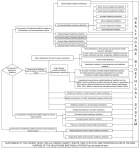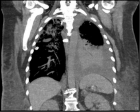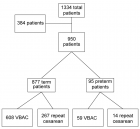Abstract
Literature Review
Healthcare Bioethics: A Vital Branch of Bioethics and a New Possible Pillar for Modern Healthcare Systems Strengthening Worldwide
Janvier Nzayikorera*
Published: 05 September, 2023 | Volume 4 - Issue 2 | Pages: 063-075
Globally, all people deserve the highest level of respect for their dignity, rights, and health. Bioethics has been recognized as a powerful discipline that aims to ensure such respect. Fritz Jar (1895–1953) and Van Rensselar Potter (1911–2001) will remain heroic men who ushered in the existence of the discipline of bioethics. Bioethics has been recognized as the science of survival and a bridge to the future. Thus, bioethics aims to enrich people’s wisdom. Wisdom is the knowledge of how to use knowledge for human survival and improvement in the quality of life. Worldwide, all people must widely possess such knowledge. Unfortunately, after many years of existence, implementing the principles and goals of bioethics remains centralized and confined to academic fields. Due to its centralized status, few branches of bioethics have been recognized. Besides, both pre-standard and standard practices still exist in the field of bioethics. Healthcare bioethical principles have been mentioned in numerous publications. However, healthcare bioethics has not been recognized as a vital branch of bioethics. The lack of well-established healthcare bioethics hinders strategies for eradicating many of the ephemeral and heuristic approaches that are still obstructing the achievement of optimum health status for numerous people worldwide. Integrating bioethical principles in all healthcare sectors in decentralized manners would lead to the existence of healthcare bioethics. The purpose of this manuscript is to describe healthcare bioethics as a vital branch of bioethics with respect to its description, branches, core principles, functions, system components, and pre-standard and standard practices of healthcare bioethics.
Read Full Article HTML DOI: 10.29328/journal.jcmhs.1001037 Cite this Article Read Full Article PDF
Keywords:
Ethics; Bioethics; Healthcare; Branches of healthcare bioethics; Core principles and functions of healthcare bioethics; Healthcare bioethics systems; Pre-standard and standard practices in healthcare bioethics; Modern healthcare systems
References
- Dennis JLKL, Hauster SL. Jameeson JL, Fauci AS, Longo DL, ed. Harrison’s Principles of Medicine. 19th Edition, McGraw-Hill Companies. Inc. 2015.
- WHO global malaria programme World malaria report, WHO Libr. Cat. Data. 2014. https://www.who.int/publications-detail-redirect/9789241564830.
- Global technical strategy for malaria 2016–2030, World Heal. Organ. 2016; 1–35. https://www.who.int/publications-detail-redirect/9789240031357.
- Word Malaria Report 2021. 2021. https://www.who.int/teams/global-malaria-programme/reports/world-malaria-report-2021.
- World malaria report 2020: 20 years of global progress and challenges. Geneva: World Health Organization; 2020. Licence: CC BY-NC-SA 3.0 IGO. 2020. https://www.who.int/teams/global-malaria-programme/reports/world-malaria-report-2020.
- Chen Q, Schlichtherle M, Wahlgren M. Molecular aspects of severe malaria, Clin. Microbiol. Rev. 2000; 13:439–450. https://doi.org/10.1128/CMR.13.3.439-450.2000.
- World Malaria Report 2017. 2017.
- Pasvol G. The treatment of complicated and severe malaria, Br. Med. Bull. 2005; 75–76:29–47. https://doi.org/10.1093/bmb/ldh059.
- Ministry of health, annual health sector performance report financial year 2020/21. 2021.
- T Republic. Intergrated management of malaria training, 2019. https://files.aho.afro.who.int/afahobckpcontainer/production/files/3_Intergrated_management_of_malaria_training_Health_workers_manual.pdf.
- Valentim M. Cerebral malaria. 2018; 8:216–221. https://doi.org/10.15406/jnsk.2018.08.00313.
- Dondorp AM. Pathophysiology, clinical presentation and treatment of cerebral malaria, Neurol. Asia. 2005; 67–77. http://www.neurology-asia.org/articles/20052_067.pdf.
- A Practical Handbook Management of Severe Malaria, 3rd ed., World Health Organization, 2012. https://apps.who.int/iris/handle/10665/79317.
- Alister GC. M. Fadzli, K. Mustaffa, R.P. Pradeep, Cytoadherence and Severe Malaria, Malays J Med Sci. 2012; 19:5-18. https://www.ncbi.nlm.nih.gov/pmc/articles/PMC3431742/.
- Department: Health Republic of South Africa, National Guidelines for the Treatment of Malaria, South Africa. 2019. https://www.nicd.ac.za/wp-content/uploads/2017/03/National-Guidelines-for-Malaria-Treatment-SEPTEMBER-2019-Update-WITH-FRONT.pdf.
- Mankhambo L, Phiri A, Mallewa M, Molyneux M. Management of severe malaria, Futur. Med. 2010; 7:27–38. https://doi.org/10.2217/thy.09.81.
- WHO Guidelines for malaria, Geneva: World Health Organization; 2023 (WHO/UCN/GMP/ 2023.01). License: CC BY-NC-SA 3.0 IGO, WHO. 2023. http://apps.who.int/bookorders.
- WHO Guidelines for Malaria - 13 July 2021, World Heal. Organ. 2021; 5–65.
Figures:

Figure 1

Figure 2

Figure 3
Similar Articles
-
Epidemiological profile of the homeless population assisted by voluntary initiative and the social impact on access to healthcare: an investigative study in Curitiba, BrazilFrancelise Bridi Cavassin*,Rafael Senff Gomes,Luiza Cardoso de Lima Passoni,Ricardo Sirigatti. Epidemiological profile of the homeless population assisted by voluntary initiative and the social impact on access to healthcare: an investigative study in Curitiba, Brazil. . 2021 doi: 10.29328/journal.jcmhs.1001010; 2: 015-020
-
The role of health sectors in the fighting misconception of COVID-19 vaccineGashaw Mehiret Wubet*,Libsuye Yalgaw Zimamu. The role of health sectors in the fighting misconception of COVID-19 vaccine. . 2022 doi: 10.29328/journal.jcmhs.1001024; 3: 076-077
-
Digital Health Opportunities and Risks: The Psychological FieldSimona Mercurio, Lucio Mango*. Digital Health Opportunities and Risks: The Psychological Field. . 2023 doi: 10.29328/journal.jcmhs.1001034; 4: 044-047
-
Healthcare Bioethics: A Vital Branch of Bioethics and a New Possible Pillar for Modern Healthcare Systems Strengthening WorldwideJanvier Nzayikorera*. Healthcare Bioethics: A Vital Branch of Bioethics and a New Possible Pillar for Modern Healthcare Systems Strengthening Worldwide. . 2023 doi: 10.29328/journal.jcmhs.1001037; 4: 063-075
-
Smart Cities and Aging Well: Exploring the Links between Technological Models and Social Models for Promoting Daily Social Interaction for Geriatric CareJocelyne Kiss*, Miguel A Reyes, James Hutson. Smart Cities and Aging Well: Exploring the Links between Technological Models and Social Models for Promoting Daily Social Interaction for Geriatric Care. . 2024 doi: 10.29328/journal.jcmhs.1001043; 5: 015-022
-
Exploring the Barriers to Clinic-based Screening for Sexually Transmitted Infections (STIs) among Men in Ghana: A Qualitative StudyJoseph Kuufaakang Kuunibe, Felix Apiribu, Timothy Tienbia Laari*, Gideon Awenabisa Atanuriba, Veronica Millicent Dzomeku, Victoria Bubunyo Bam, Abigail Kusi-Amponsah Diji, Adwoa Bemah Boamah Mensah, Philemon Adoliwine Amooba, Rumana Saeed Mohammed, E. Exploring the Barriers to Clinic-based Screening for Sexually Transmitted Infections (STIs) among Men in Ghana: A Qualitative Study. . 2024 doi: 10.29328/journal.jcmhs.1001046; 5: 044-051
-
Designing a Community Health Worker (CHW) Certificate Training that Centers Marginalized Youth’s Health and WellnessRuby Mendenhall*, Tramayne Butler-DeLong, Meggan J Lee, Kiara Langford. Designing a Community Health Worker (CHW) Certificate Training that Centers Marginalized Youth’s Health and Wellness. . 2024 doi: 10.29328/journal.jcmhs.1001047; 5: 052-056
-
Fostering Pathways and Creativity Responsible for Advancing Health Research Skills and Knowledge for Healthcare Professionals to Heighten Evidence-Based Healthcare Practices in Resource-Constrained Healthcare SettingsJanvier Nzayikorera*. Fostering Pathways and Creativity Responsible for Advancing Health Research Skills and Knowledge for Healthcare Professionals to Heighten Evidence-Based Healthcare Practices in Resource-Constrained Healthcare Settings. . 2025 doi: 10.29328/journal.jcmhs.1001052; 6: 005-019
Recently Viewed
-
A rare case of giant ovarian serous cystadenoma presenting as psuedo-meigs syndromeRichmond Ronald Gomes*,Sayeda Noureen,Habiba Akhter. A rare case of giant ovarian serous cystadenoma presenting as psuedo-meigs syndrome. Clin J Obstet Gynecol. 2021: doi: 10.29328/journal.cjog.1001078; 4: 010-014
-
Three visionaries for HRTJoseph Loze Onwude*. Three visionaries for HRT. Clin J Obstet Gynecol. 2021: doi: 10.29328/journal.cjog.1001077; 4: 007-009
-
The Utility of Acupuncture in Sports Medicine: A Review of the Recent LiteratureMichael Malone*. The Utility of Acupuncture in Sports Medicine: A Review of the Recent Literature. J Sports Med Ther. 2017: doi: 10.29328/journal.jsmt.1001004; 2: 020-027
-
Sinonasal Myxoma Extending into the Orbit in a 4-Year Old: A Case PresentationJulian A Purrinos*, Ramzi Younis. Sinonasal Myxoma Extending into the Orbit in a 4-Year Old: A Case Presentation. Arch Case Rep. 2024: doi: 10.29328/journal.acr.1001099; 8: 075-077
-
Sex after Neurosurgery–Limitations, Recommendations, and the Impact on Patient’s Well-beingMor Levi Rivka*, Csaba L Dégi. Sex after Neurosurgery–Limitations, Recommendations, and the Impact on Patient’s Well-being. J Neurosci Neurol Disord. 2024: doi: 10.29328/journal.jnnd.1001099; 8: 064-068
Most Viewed
-
Evaluation of Biostimulants Based on Recovered Protein Hydrolysates from Animal By-products as Plant Growth EnhancersH Pérez-Aguilar*, M Lacruz-Asaro, F Arán-Ais. Evaluation of Biostimulants Based on Recovered Protein Hydrolysates from Animal By-products as Plant Growth Enhancers. J Plant Sci Phytopathol. 2023 doi: 10.29328/journal.jpsp.1001104; 7: 042-047
-
Sinonasal Myxoma Extending into the Orbit in a 4-Year Old: A Case PresentationJulian A Purrinos*, Ramzi Younis. Sinonasal Myxoma Extending into the Orbit in a 4-Year Old: A Case Presentation. Arch Case Rep. 2024 doi: 10.29328/journal.acr.1001099; 8: 075-077
-
Feasibility study of magnetic sensing for detecting single-neuron action potentialsDenis Tonini,Kai Wu,Renata Saha,Jian-Ping Wang*. Feasibility study of magnetic sensing for detecting single-neuron action potentials. Ann Biomed Sci Eng. 2022 doi: 10.29328/journal.abse.1001018; 6: 019-029
-
Pediatric Dysgerminoma: Unveiling a Rare Ovarian TumorFaten Limaiem*, Khalil Saffar, Ahmed Halouani. Pediatric Dysgerminoma: Unveiling a Rare Ovarian Tumor. Arch Case Rep. 2024 doi: 10.29328/journal.acr.1001087; 8: 010-013
-
Physical activity can change the physiological and psychological circumstances during COVID-19 pandemic: A narrative reviewKhashayar Maroufi*. Physical activity can change the physiological and psychological circumstances during COVID-19 pandemic: A narrative review. J Sports Med Ther. 2021 doi: 10.29328/journal.jsmt.1001051; 6: 001-007

HSPI: We're glad you're here. Please click "create a new Query" if you are a new visitor to our website and need further information from us.
If you are already a member of our network and need to keep track of any developments regarding a question you have already submitted, click "take me to my Query."

















































































































































